
Smarter email, faster business.
Auto-tag, parse, and respond to RFQs, quotes, orders, and more — instantly.
Boeing Forecasts Slight Decline in Widebody Aircraft Demand Over 20 Years
June 14, 2025By ePlane AI
0
0
Boeing
Widebody Aircraft Demand
Commercial Market Outlook
More news
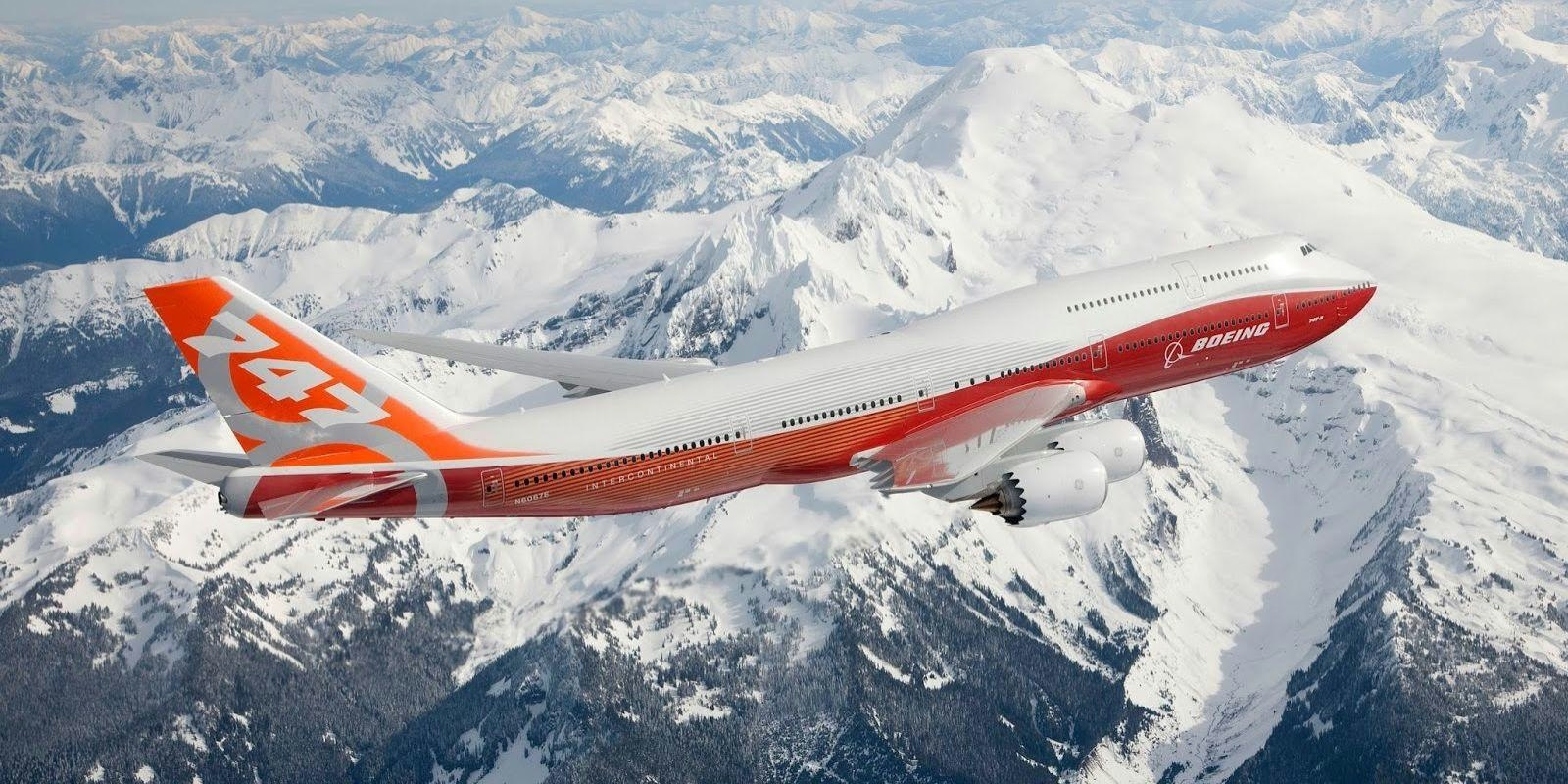
Why US Airlines Did Not Order the Boeing 747-8
Why US Airlines Did Not Order the Boeing 747-8
The Boeing 747 has long been an emblem of American aviation, celebrated as a flagship aircraft for major US carriers and a symbol of luxury air travel. Despite this illustrious history, the final iteration—the Boeing 747-8—never secured orders from any US passenger airline. Of the 155 747-8s produced between 2008 and 2023, the overwhelming majority were deployed as cargo freighters, with only a limited number of passenger variants sold exclusively to foreign carriers.
Economic and Industry Shifts
This absence is particularly notable given the 747’s historic prominence in the US market. When the original 747 was introduced, it was eagerly embraced by American airlines for their most prestigious and high-capacity routes. However, by the time the 747-8 entered production, the aviation industry had undergone significant transformation. The primary factor behind the lack of domestic passenger orders was economic. Newer twin-engine aircraft such as the Boeing 777 offered airlines enhanced fuel efficiency, greater operational flexibility, and improved profitability. The 747-8, with its four engines and larger size, could not match the cost advantages of these modern twinjets, making it less attractive to US carriers focused on optimizing their fleets.
Beyond pure economics, broader political and industry dynamics also influenced the 747-8’s reception. During the aircraft’s production period, the Trump administration imposed tariffs on imported aircraft and components, creating uncertainty for US airlines contemplating new purchases. Delta Air Lines publicly warned that these tariffs threatened to disrupt not only Airbus acquisitions but also future aircraft procurement more generally. Boeing itself faced retaliatory tariffs from other countries, complicating international aerospace transactions. Additionally, the administration’s scrutiny of the Qatari 747-8 as a potential Air Force One replacement underscored the complex political environment surrounding the aircraft. High-profile incidents, including the Air India accident involving a 747-8 and skepticism expressed by Airbus’ CEO regarding order prospects at the Paris Air Show, further contributed to a cautious atmosphere among US airlines.
The Legacy of the Jumbo Jet in the US
The decline of the 747 in the US passenger market is also intertwined with the fate of Pan Am, the original launch customer and most iconic operator of the jumbo jet. Pan Am’s identity was closely tied to the “Queen of the Skies,” but the airline struggled to navigate the challenges of deregulation and financial strain. It ultimately declared bankruptcy in 1991, citing factors such as rising fuel costs during the Persian Gulf crisis, the tragic terrorist bombing of Flight 103, and mounting legal and regulatory burdens. Many analysts argue that Pan Am’s reluctance to transition away from the jumbo jet and modernize its fleet contributed to its downfall.
Today, only a small number of 747-8 Intercontinental (747-8I) passenger aircraft remain in service, primarily with international airlines. The “I” designation reflects the aircraft’s design for long-haul intercontinental routes. In the United States, however, the era of the jumbo jet has effectively ended, supplanted by more efficient and versatile aircraft like the Boeing 777X. While the 747-8’s legacy endures as a milestone in aviation history, its absence from American passenger fleets highlights the evolving priorities and economic realities shaping the modern airline industry.
BigBear.ai's AI Security Solutions Support Aviation Recovery
BigBear.ai’s AI Security Solutions Support Aviation Recovery Amid Evolving Threats
As the global aviation industry recovers from the disruptions caused by the COVID-19 pandemic, it confronts a dual challenge: managing a surge in passenger volumes while countering increasingly sophisticated security threats. BigBear.ai (NYSE: BBAI) is positioning itself at the forefront of this evolving landscape. The company’s recent collaboration with Analogic to integrate its AI-driven threat detection technology into CT scanners represents a pivotal advancement in aviation security, enabling BigBear.ai to capitalize on the expanding $20 billion global market.
Strategic Integration of AI and Hardware
BigBear.ai’s Pangiam® Threat Detection platform has been embedded into Analogic’s ConneCT™ CT scanners, marking a significant innovation in airport security protocols. By utilizing artificial intelligence to analyze CT scan data in real time, the system enhances threat identification accuracy while reducing false positives—an essential improvement for airports aiming to expedite passenger processing. The platform’s open-architecture design offers airports the flexibility to integrate diverse hardware and software components, safeguarding their investments against rapid technological obsolescence. CEO Kevin McAleenan emphasizes that this adaptability allows airports to “respond to emerging threats without overhauling their entire infrastructure.”
Nonetheless, the dynamic nature of AI security introduces new vulnerabilities. Emerging risks such as agentic AI exploits, data poisoning, and model deserialization highlight the necessity for a secure-by-design framework. BigBear.ai is committed to continuously evolving its solutions by incorporating specialized AI security measures to counter both conventional and novel threats effectively.
Financial Performance and Market Momentum
BigBear.ai’s financial results for the first quarter of 2025 underscore its growing influence in the aviation security sector. The company reported a 5% year-over-year revenue increase, reaching $34.8 million, driven by contracts with the Department of Homeland Security and initiatives in digital identity verification. Its backlog expanded by 15% compared to 2024, totaling $385 million, reflecting strong demand for its biometric and AI-powered systems deployed at U.S. ports of entry.
Despite narrowing its net loss to $62 million from $127.8 million in the previous year’s quarter, the company continues to operate at a loss. Management remains optimistic, reaffirming full-year revenue guidance between $160 million and $180 million and projecting losses in the single-digit millions. The stock has declined approximately 30% year-to-date, reflecting investor caution over sustained losses, yet this downturn may present an entry point ahead of anticipated margin improvements.
Drivers of Growth in Aviation Security
The sector’s expansion is propelled by two primary trends. First, airports are modernizing legacy screening systems by adopting AI-enhanced technologies. Analogic’s extensive installed base of over 3,000 CT scanners provides a substantial market for BigBear.ai’s software solutions. Second, governments are increasingly mandating biometric systems that link traveler identities to threat databases, an area where BigBear.ai’s AI capabilities are particularly effective.
Automation of threat detection not only enhances accuracy but also reduces the need for manual staffing. Industry estimates suggest that CT scanners equipped with Pangiam technology can process approximately 20% more passengers daily compared to traditional systems, thereby improving operational efficiency.
Challenges and Competitive Environment
BigBear.ai faces several challenges in its pursuit of market leadership. Delays in government funding have contributed to excess capacity costs, while Analogic’s CT scanners compete against established industry players such as Smiths Detection and Thales. The broader AI security market is intensely competitive, with significant investments from major technology firms potentially exerting downward pressure on prices and profit margins. Competitors are also likely to adopt similar AI-driven security solutions to maintain their market share.
Additionally, declining public trust in AI—fueled by concerns over security vulnerabilities—poses a significant national security risk. Developing robust and trustworthy AI systems is critical not only for operational success but also for sustaining public confidence in these technologies.
Investment Perspective
Trading at $2.80 per share, BigBear.ai’s stock is valued at approximately 7.5 times the midpoint of its 2025 revenue guidance, representing a discount relative to peers such as Palantir Technologies (PLTR). Analysts’ consensus target price of $4.00 implies a potential upside of 43%, contingent on the company’s ability to improve profit margins. While the investment remains speculative, BigBear.ai’s strategic focus on secure, adaptable AI solutions positions it as a noteworthy contender in the rapidly evolving aviation security market.
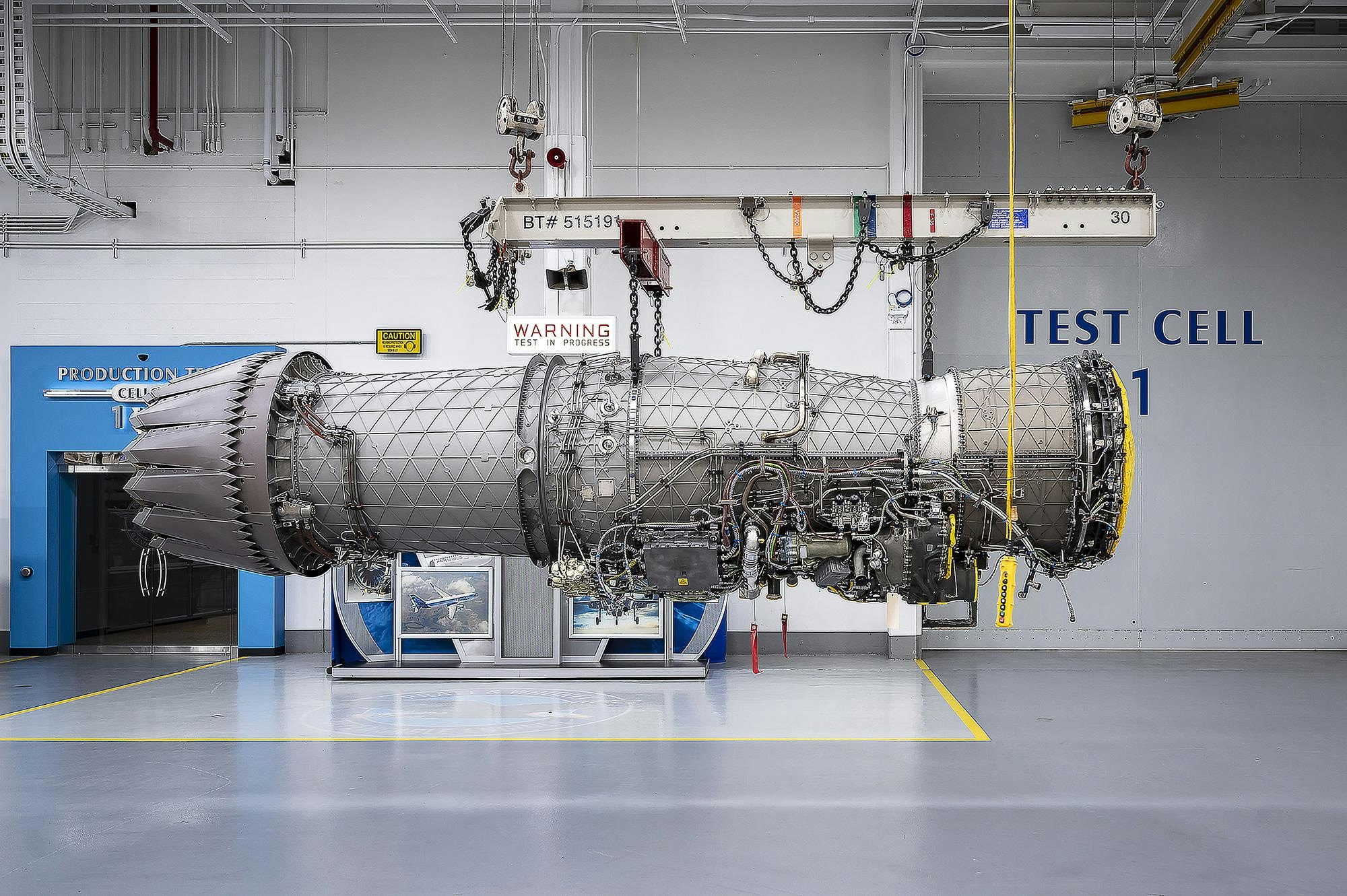
Startup Tests Advanced Jet Engine Prototype
Startup SiriNor Advances Emission-Free Jet Engine Technology
Groundbreaking Prototype Achieves Key Milestone
SiriNor, a startup operating out of India and Norway, has successfully completed ground testing of its pioneering emission-free electric jet engine prototype. The test, conducted in Pune, India, marked a significant achievement as the engine reached Technology Readiness Level 6 (TRL6) under NASA’s evaluation framework. This milestone signals the engine’s readiness for demonstration in relevant environments, underscoring the potential for transformative impact on the future of aviation.
During the controlled laboratory tests, the engine exceeded its design expectations by achieving rotational speeds surpassing 40,000 revolutions per minute and generating a thrust of 10 kilogram-force. These results validate the engine’s scalability and adaptability, highlighting its promise for various aerospace applications. By eliminating combustion processes, SiriNor’s design offers a 30% reduction in manufacturing costs and decreases maintenance requirements by up to 40%, factors that could lead to more affordable air travel and reduced shipping expenses.
Environmental and Industry Implications
The environmental advantages of SiriNor’s electric jet engine are considerable. Aviation was responsible for approximately 2.4% of global carbon dioxide emissions in 2018, according to data from the Environmental and Energy Study Institute. Transitioning to electric propulsion systems like SiriNor’s could substantially lower these emissions, contributing to cleaner air and mitigating the aviation sector’s environmental footprint. The company’s approach draws parallels to the impact electric vehicles have had in reducing pollution and maintenance costs in ground transportation.
Despite these promising developments, SiriNor faces significant challenges as it advances toward commercialization. Securing adequate funding, navigating stringent regulatory landscapes, and managing inherent technological risks remain critical obstacles. Investor caution is expected given the high capital requirements and uncertainties associated with novel engine technologies. Additionally, established aerospace manufacturers are likely to intensify their research and development efforts, form strategic alliances, or pursue acquisitions to maintain competitive advantage. The recent expansion of Kratos Defense’s advanced manufacturing capabilities for GEK turbojet engines in Oklahoma exemplifies the dynamic and competitive nature of the sector.
Future Prospects and Industry Outlook
SiriNor has outlined an ambitious roadmap, aiming to commercialize its engines for unmanned aerial vehicles by mid-2026, obtain seaplane certification by 2027, and target regional aircraft markets by 2030. The company envisions eventual adoption of its technology in commercial passenger aircraft, positioning itself at the forefront of sustainable aviation innovation.
Abhijeet Inamdar, co-founder and CEO of SiriNor India, emphasized the company’s commitment to sustainability and adaptability, stating, “This is about shaping the next era of aviation — and we’re proud to be building it from India.” Early investor Alok B Shriram, senior managing director and CEO of DCM Shriram Industries, highlighted the significance of the achievement as “serious, homegrown technology built in India” and expressed confidence in its role as the future of aviation.
As the aerospace industry continues to evolve amid technological advancements and increasing environmental pressures, SiriNor’s progress will be closely monitored as a potential catalyst for cleaner, more efficient air travel on a global scale.
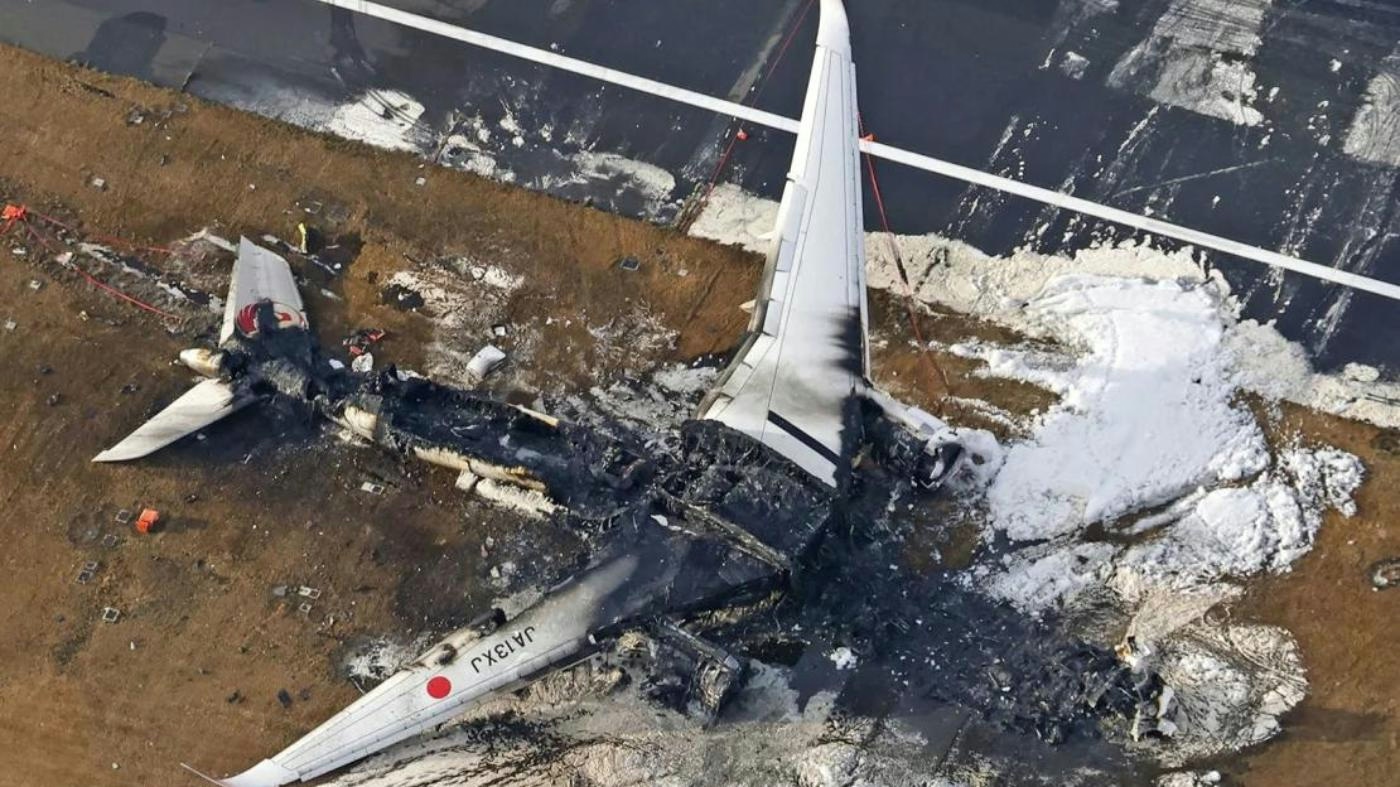
International Aviation Authority Considers Joining AI-Related Crash Investigation
International Civil Aviation Organisation to Join Air India Crash Investigation as Observer
ICAO’s Unprecedented Involvement in a High-Profile Aviation Disaster
The International Civil Aviation Organisation (ICAO) is set to participate as an observer in the investigation of the Air India Flight 171 crash, following India’s approval of the UN aviation body’s formal request. The request, submitted on June 20, cited the critical nature of the incident and the significant public interest it has generated. This development marks a rare instance of ICAO seeking direct involvement in an accident probe, underscoring the gravity of the tragedy.
The crash occurred on June 12 shortly after takeoff from Ahmedabad, resulting in at least 271 fatalities. The disaster has drawn intense international scrutiny, with 52 British nationals among the victims and Boeing, the aircraft’s manufacturer, based in the United States. Both UK and US authorities have been involved in the investigation to date, although it remains unclear whether either government formally requested ICAO’s participation.
An official familiar with the matter explained that ICAO’s offer to join the investigation reflects the incident’s critical importance and widespread public concern. India’s acceptance of this offer is expected to lead to the designation of an ICAO observer within days. This move is considered highly unusual, as ICAO’s own guidelines under Annex 13 typically restrict its involvement in accident investigations unless explicitly invited by the state with jurisdiction.
Expert Perspectives on ICAO’s Role and Investigation Challenges
JS Rawat, former joint director general of India’s Directorate General of Civil Aviation (DGCA), emphasized the exceptional nature of ICAO’s request, noting that in his more than 30 years of experience, this is the first time the organisation has sought to participate in an investigation in this manner. Correspondence reviewed from India’s ICAO representative to the civil aviation secretary highlighted that the presence of an observer would significantly enhance the efficiency and effectiveness of the ongoing probe.
Aviation safety expert Mohan Ranganathan clarified that ICAO’s role, along with that of other international stakeholders such as the UK Civil Aviation Authority, Boeing, and the US National Transportation Safety Board, will remain limited. The Aircraft Accident Investigation Bureau (AAIB) of India retains full responsibility for conducting the investigation, with external parties providing assistance only as requested. Typically, ICAO’s observer role involves advising on compliance with Annex 13 requirements rather than direct investigative authority.
The investigation faces considerable challenges, including the complex task of determining the precise causes of the crash, which may involve both technical failures and human factors. The recovery and analysis of the flight data recorder are expected to be pivotal in reconstructing the sequence of events leading to the disaster.
Broader Implications for Aviation Industry and Air India
The crash has already begun to reverberate across the aviation sector, particularly impacting the insurance market, which is anticipated to harden due to increased risk perceptions. This effect is especially pronounced in India, where the aviation industry has been grappling with financial losses. Competitors and regulators may respond with heightened scrutiny and revisions to safety protocols in the wake of the tragedy.
For Air India, the incident represents a significant challenge amid its ongoing transformation under the Vihaan.AI program, which aims to elevate the airline to a “world-class global” status. The findings of the investigation and the subsequent industry response are likely to have enduring consequences for both the airline and the wider aviation community.
Requests for comment from the civil aviation ministry and ICAO were not answered.
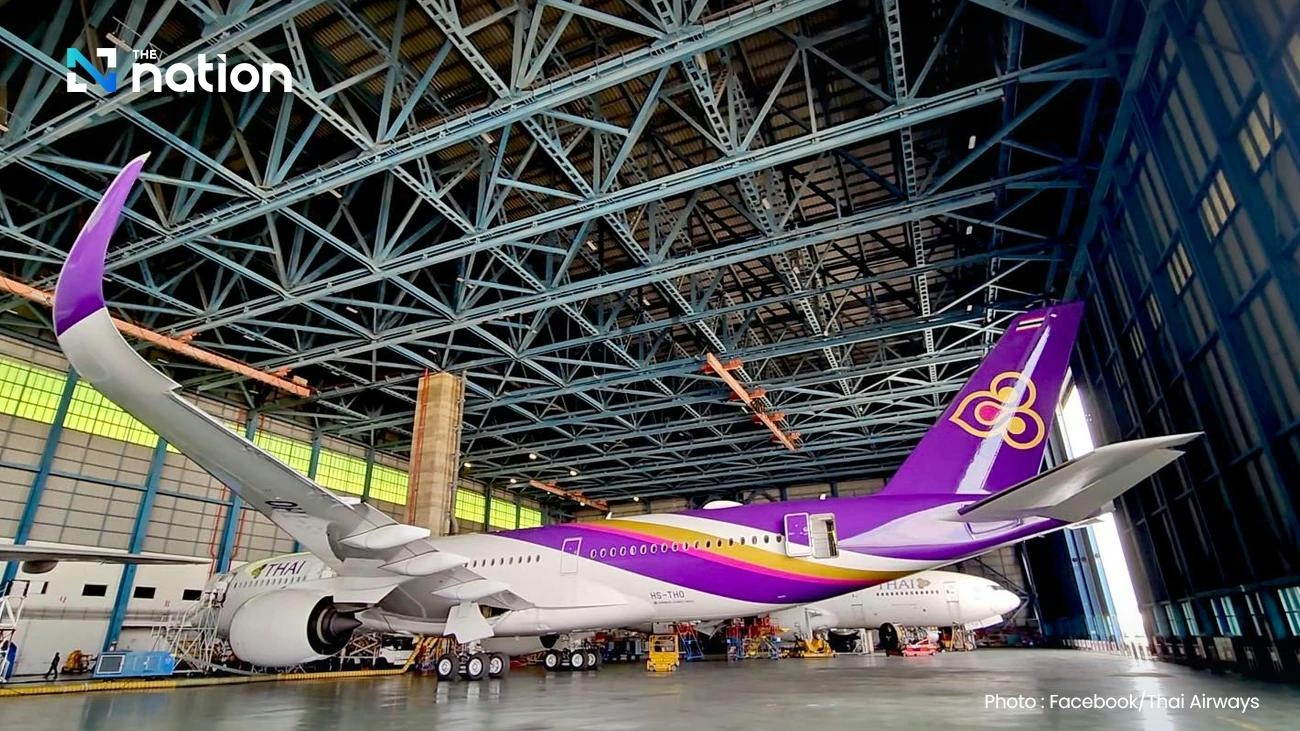
Thai Airways revives THB 10bn MRO project, ready to invest this year
Thai Airways Revives THB 10 Billion MRO Project, Plans Investment This Year
Thai Airways is set to revive its long-delayed maintenance, repair, and overhaul (MRO) project, valued at THB 10 billion, with intentions to commence investment within the current year. This development marks a significant step for the national carrier as it seeks to rebuild and expand following its emergence from bankruptcy proceedings. However, industry experts caution that the project faces considerable challenges in a competitive and highly regulated environment.
Strategic Ambitions and Market Challenges
The MRO facility was initially designed to establish Thailand as a key regional aviation hub, requiring substantial capital outlay and compliance with stringent regulatory standards. Thai Airways will confront intense competition from established regional players, notably Garuda Indonesia’s GMF AeroAsia, which currently holds a dominant position in the Southeast Asian MRO market. The airline’s ability to secure funding and execute the project effectively remains under scrutiny, particularly given its recent financial restructuring.
Market responses to the announcement have been mixed. While some stakeholders view the initiative as a positive indicator of Thailand’s commitment to strengthening its aviation infrastructure, others express reservations about Thai Airways’ financial stability and capacity to deliver on such an ambitious project so soon after emerging from bankruptcy. Analysts highlight that lingering concerns over investor confidence could complicate efforts to attract the necessary capital.
Competitive Dynamics and Future Outlook
Rival airlines are expected to monitor Thai Airways’ progress closely, with some likely to enhance their own maintenance capabilities or adjust route strategies to safeguard market share. The competitive landscape has already evolved with the recent launch of a joint venture between Thai Airways and Turkish Airlines on the Bangkok-Istanbul route, a strategic move that may further influence regional market dynamics and prompt additional responses from competitors.
Despite these obstacles, Thai Airways remains optimistic about the MRO project’s potential to create new revenue streams and support the airline’s long-term recovery. The company has indicated readiness to proceed with investment this year, contingent upon receiving final regulatory approvals.
As the global aviation sector continues its recovery from the pandemic, the success of Thai Airways’ MRO initiative will be closely observed as a key indicator of both the airline’s future prospects and Thailand’s broader ambitions to become a leading aviation hub in the region.

Air T Inc. SEC Form 10-K Filing
Air T, Inc. Files Annual SEC Form 10-K, Reports Revenue Growth Amid Market Challenges
Air T, Inc., a diversified holding company with operations spanning overnight air cargo, ground support equipment, commercial aircraft, engines and parts, and digital solutions, has submitted its annual Form 10-K filing with the Securities and Exchange Commission. The report provides a comprehensive overview of the company’s financial performance, operational developments, and strategic priorities, while also addressing the challenges it faces in a competitive and evolving market environment.
Financial Performance and Segment Analysis
In the fiscal year ending March 31, 2025, Air T reported total revenues of $291.9 million, marking a 2% increase compared to the previous year. This growth was primarily driven by higher labor revenues and a significant rise in software subscription sales. Operating income improved by $0.6 million to $1.9 million, largely due to increased sales of higher-margin component packages. However, the company recorded a net loss of $5.4 million, reflecting an expansion in net losses year-over-year. This was mainly attributable to elevated interest expenses and volatility in the fair value of interest rate swap contracts. The net loss attributable to stockholders stood at $6.1 million, with a loss per share of $2.23 on both a basic and diluted basis.
Air T’s operations are organized into four principal segments, each managed independently and offering distinct products and services. The Overnight Air Cargo segment, operated through Mountain Air Cargo, Inc. (MAC) and CSA Air, Inc. (CSA), maintains a longstanding partnership with FedEx, operating and maintaining a fleet of 103 aircraft under dry-lease agreements as of the end of the fiscal year. The Ground Support Equipment segment, represented by Global Ground Support, LLC (GGS), manufactures and services aircraft deicers and specialized equipment. This segment experienced a 5% revenue increase, supported by robust spare parts sales and a backlog valued at $14.3 million.
Conversely, the Commercial Aircraft, Engines and Parts segment, which includes Contrail Aviation Support, LLC and Jet Yard, LLC, saw a 6% decline in revenue. This decrease was driven by a reduced supply of whole assets available for tear-down or resale. The Digital Solutions segment, comprising WorldACD Market Data B.V. and Ambry Hills Technology, LLC, recorded a substantial 26% increase in revenue, fueled by higher sales of software subscriptions.
Operational Developments and Strategic Outlook
Operationally, GGS delivered 15 deicers to the U.S. Air Force during fiscal 2025 and has secured confirmed orders for 16 additional units in fiscal 2026. In a notable milestone, MAC operated the first commercial revenue-service flight for the Cessna 408 SkyCourier in 2023, highlighting Air T’s role in introducing new aircraft models to the market. The Overnight Air Cargo segment services routes across the eastern United States, the upper Midwest, and the Caribbean, with FedEx remaining a key customer.
Amid a challenging market environment characterized by inflationary pressures and shifting trade policies, Air T continues to prioritize operational efficiency and risk management. The company’s strategic focus remains on diversification and growth, with particular emphasis on expanding its digital solutions offerings, which are expected to be a significant driver of future performance. Potential challenges include managing financial and strategic risks, maintaining operational effectiveness, and responding to competitive pressures. Market responses will likely depend on Air T’s ability to execute its strategic initiatives effectively, while competitors may seek to enhance their own product portfolios to safeguard market share.
Despite ongoing economic headwinds, Air T anticipates sustained demand for commercial aircraft, engines, and parts. The company remains committed to leveraging its diversified business model and strategic investments to foster growth, positioning digital solutions as a central pillar of its expansion strategy.
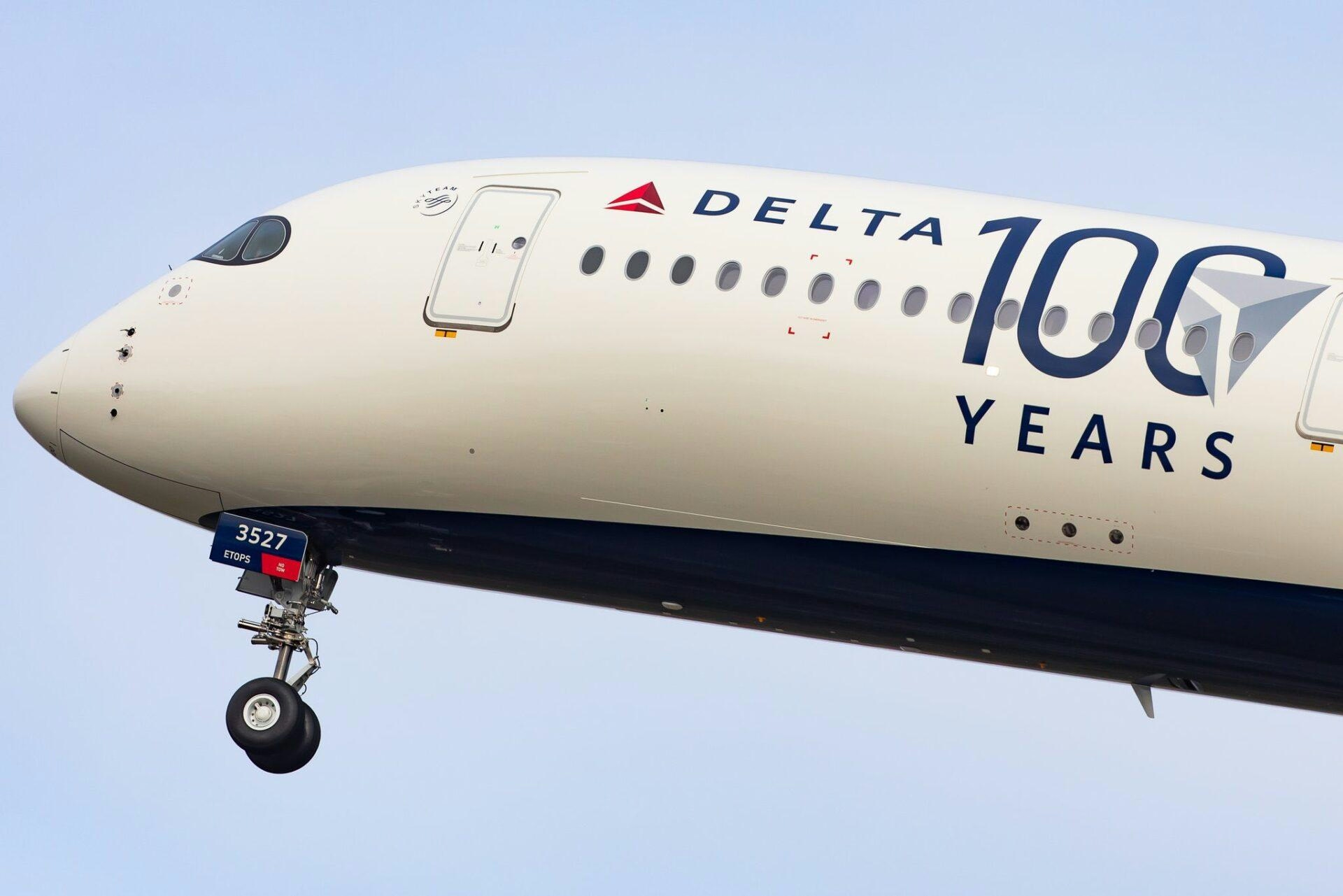
Which Widebody Aircraft Is Delta Air Lines the Largest and Only U.S. Operator Of?
Delta Air Lines and the Airbus A330-900neo: A Unique Position in the U.S. Market
Since its unveiling in 2014 and first flight in 2017, the Airbus A330-900neo has rapidly established itself as a preferred widebody aircraft for long-haul routes across the globe. Among U.S. carriers, Delta Air Lines holds a distinctive position as the only commercial airline operating this model domestically. Moreover, Delta is the largest operator of the A330-900neo worldwide, underscoring its strategic commitment to this aircraft type.
Delta’s A330-900neo Fleet and Global Context
Delta currently operates a fleet of 36 Airbus A330-900neos, with an additional three aircraft expected to be delivered by the end of the year, bringing the total to 39. According to aviation analytics firm Cirium, these aircraft provide over 500,000 seats monthly, primarily servicing long-haul routes spanning distances between 3,000 and 6,000 miles. The A330-900neo’s maximum seating capacity of 465 makes it an attractive option for airlines aiming to optimize passenger loads and profitability on high-demand international routes.
Globally, the A330-900neo has seen 372 deliveries, significantly surpassing its smaller counterpart, the A330-800, which has recorded only 12 deliveries. Other prominent operators include Cebu Pacific with 16 aircraft, AirAsia X and Flynas each with 15, Cathay Pacific with 30, Virgin Atlantic with 13, TAP Air Portugal and Garuda Indonesia each with 12, and ITA Airways with 10.
Launch Customers, Orders, and Delta’s Strategic Commitment
TAP Air Portugal was the official launch customer for the A330-900neo, receiving its first aircraft at the end of 2018. However, Airbus records reveal that Delta placed its initial order for 25 A330-900neos as early as November 2014, subsequently increasing the order by 10 more aircraft in 2018. Presently, Delta has 35 active A330-900neos in service, with one temporarily inactive.
Delta’s leadership in operating the A330-900neo is complemented by its unique status as the largest and sole U.S. operator of another Airbus widebody, the A350. This exclusive position has presented challenges, including potential impacts from tariffs on imported aircraft and parts, which could affect future Airbus orders and deliveries. Despite these uncertainties, Delta remains steadfast in its Airbus fleet strategy.
The airline has downplayed competitive pressures, even as rivals such as IndiGo expand partnerships with Air France-KLM and Virgin Atlantic, and plan to include Delta as a partner for launching long-haul flights to Europe. While market responses to Delta’s A350 operations have been mixed, the carrier continues to express confidence in its international growth strategy.
Delta’s Role in Shaping Long-Haul Air Travel
Delta Air Lines’ significant investment in the Airbus A330-900neo and A350 reflects its dedication to deploying modern, fuel-efficient widebody aircraft for long-haul operations. As the largest global operator of the A330-900neo and the only U.S. airline flying both the A330-900neo and A350, Delta plays a pivotal role in defining the future of transcontinental and transatlantic air travel. The airline’s ongoing navigation of industry challenges and evolving competitive dynamics will remain critical to its position in the global aviation landscape.

Joby Aviation Shares Rise 11% Amid U.S. Push for Air Taxis
Joby Aviation Shares Rise 11% Amid U.S. Push for Air Taxis
Joby Aviation’s shares surged 11% amid renewed optimism surrounding the burgeoning U.S. air taxi market. This increase reflects growing momentum driven by government initiatives and strategic industry partnerships aimed at integrating electric vertical takeoff and landing (eVTOL) aircraft into urban transportation networks. The Biden administration, alongside key industry players, is actively promoting the adoption of these innovative vehicles to transform short-distance travel.
Strategic Partnerships and Investments Propel Growth
Joby’s recent gains are underpinned by significant collaborations and financial backing. Its partnership with Delta Air Lines is expected to facilitate the future rollout of air taxi services, while a $250 million investment from Toyota signals strong confidence in Joby’s technology and readiness for commercialization. These developments position Joby as a leading contender in the race to establish a viable air taxi market both within the United States and internationally.
Intensifying Competition and Market Challenges
The competitive environment is becoming increasingly fierce. Archer Aviation, a key rival, recently secured $850 million in funding, highlighting robust investor interest and intensifying the battle for market dominance. This substantial capital infusion may enable Archer to accelerate its development and deployment efforts, particularly in strategically important regions where both companies are vying for leadership.
Market sentiment toward Joby remains divided. Some analysts have downgraded the stock, citing concerns over the absence of near-term profitability and the complexities involved in scaling operations. Conversely, others emphasize Joby’s strategic advantages, including its strong U.S. partnerships and recent expansion into the Dubai market, where regulatory frameworks and infrastructure investments are advancing rapidly.
Global Market Dynamics and Regional Shifts
The global air taxi sector is also experiencing notable regional shifts. In Europe, domestic manufacturers face challenges as local startups struggle financially, potentially allowing U.S. companies like Joby and Archer to capture greater market share. This evolving landscape may compel European competitors to intensify innovation efforts or pursue new alliances to maintain their competitiveness.
As the air taxi industry continues to develop, Joby’s capacity to leverage partnerships, secure ongoing funding, and navigate regulatory complexities will be crucial. The recent surge in its share price reflects heightened investor confidence but also underscores the volatility and high stakes inherent in this emerging market. With competition intensifying and global market dynamics in flux, Joby’s forthcoming strategic decisions will be closely monitored by investors and industry observers alike.
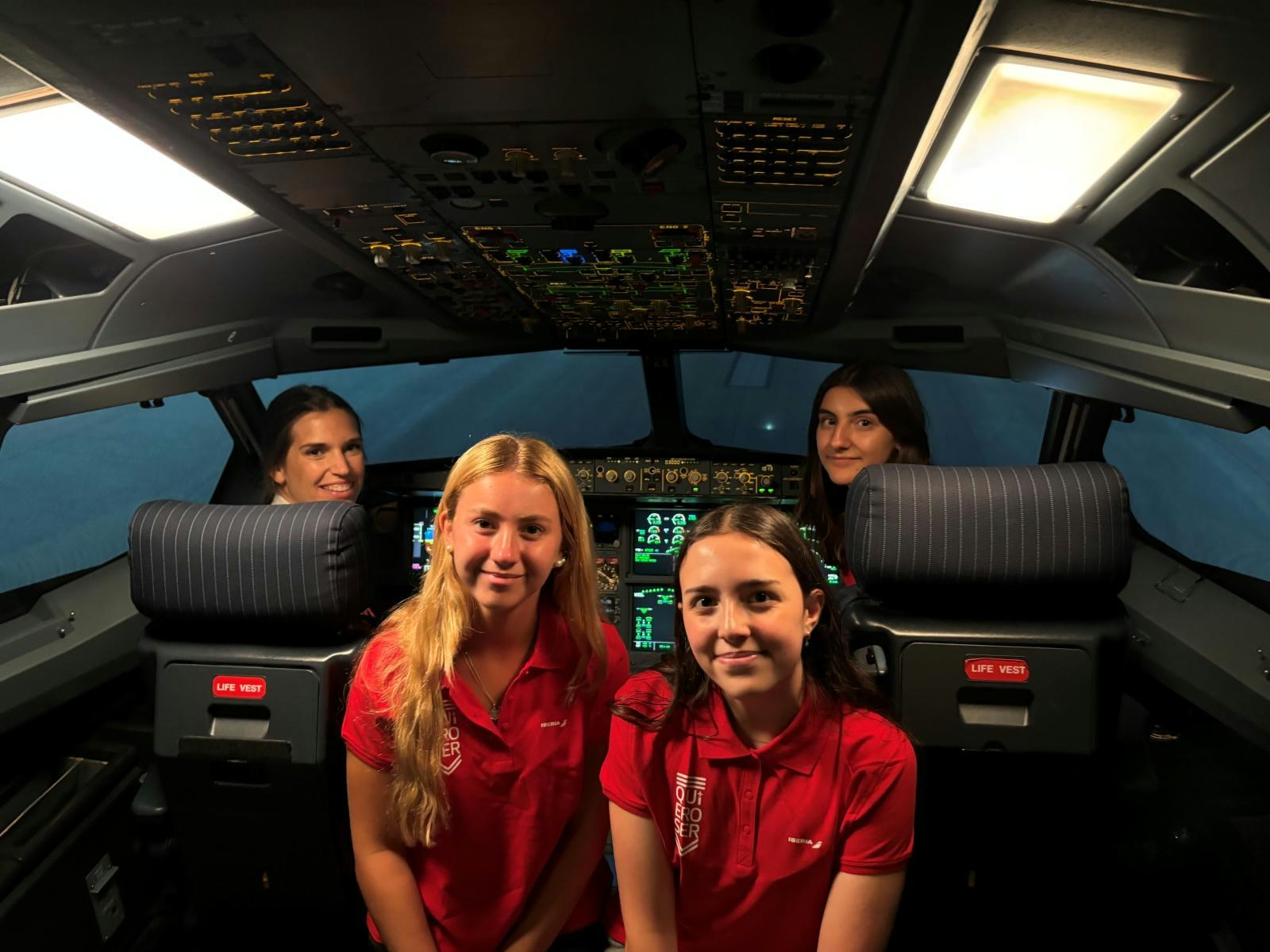
Iberia opens hangar doors to promote aviation careers to young women
Iberia Opens Hangar Doors to Promote Aviation Careers Among Young Women
Iberia recently welcomed 35 young women to its hangar as part of its ongoing initiative to encourage greater female participation in the aviation sector. The event, held under the airline’s ‘Quiero Ser’ programme and organized in partnership with CAE and Technovation Girls, invited girls aged 14 to 18 to engage in hands-on experiences related to commercial aviation and aircraft maintenance.
Immersive Experience in Aviation
During the visit, participants toured CAE’s crew training centre, where they explored advanced flight simulators used by professional airline crews. The group also gained access to Iberia Maintenance’s core facilities, including engine and component workshops, test benches, and Hangar 6. This provided the young women with direct insight into the daily responsibilities of pilots, aircraft maintenance technicians, and engineers, offering a rare glimpse into the technical and operational aspects of the industry.
Advancing Diversity and Inclusion
Now in its fourth year, the ‘Quiero Ser’ programme forms a key part of Iberia’s broader diversity, equity, and inclusion strategy. The initiative seeks to promote equal opportunities and elevate female role models within an industry where women remain significantly underrepresented, especially in technical and operational roles. María Bello, Iberia’s director of people and diversity, highlighted the importance of early engagement, stating, “We firmly believe that inspiring vocations from an early age is key to building a more diverse future. It is deeply inspiring to see these young women drawn to professions where female representation has historically been lower. With the ‘Quiero Ser’ programme, we aim to do just that: open doors, spark vocations, and give visibility to lesser-known professions, partly due to the lack of role models.”
Challenges and Industry Context
While the programme has received positive feedback from educational institutions and aviation employers, Iberia faces ongoing challenges in maintaining sustained interest and participation among female students. The airline operates within a competitive environment where other carriers and organizations are launching similar initiatives to attract young talent and address the gender imbalance in aviation. Responses from competitors vary from collaborative efforts to more discreet attempts to recruit from the same pool of aspiring professionals, underscoring the widespread industry imperative to enhance gender diversity.
Despite these challenges, Iberia’s dedication to fostering inclusion and inspiring the next generation of women in aviation remains resolute. By providing direct exposure to aviation careers and showcasing female role models, the airline aims to contribute to closing the gender gap and securing a more diverse future for the sector.
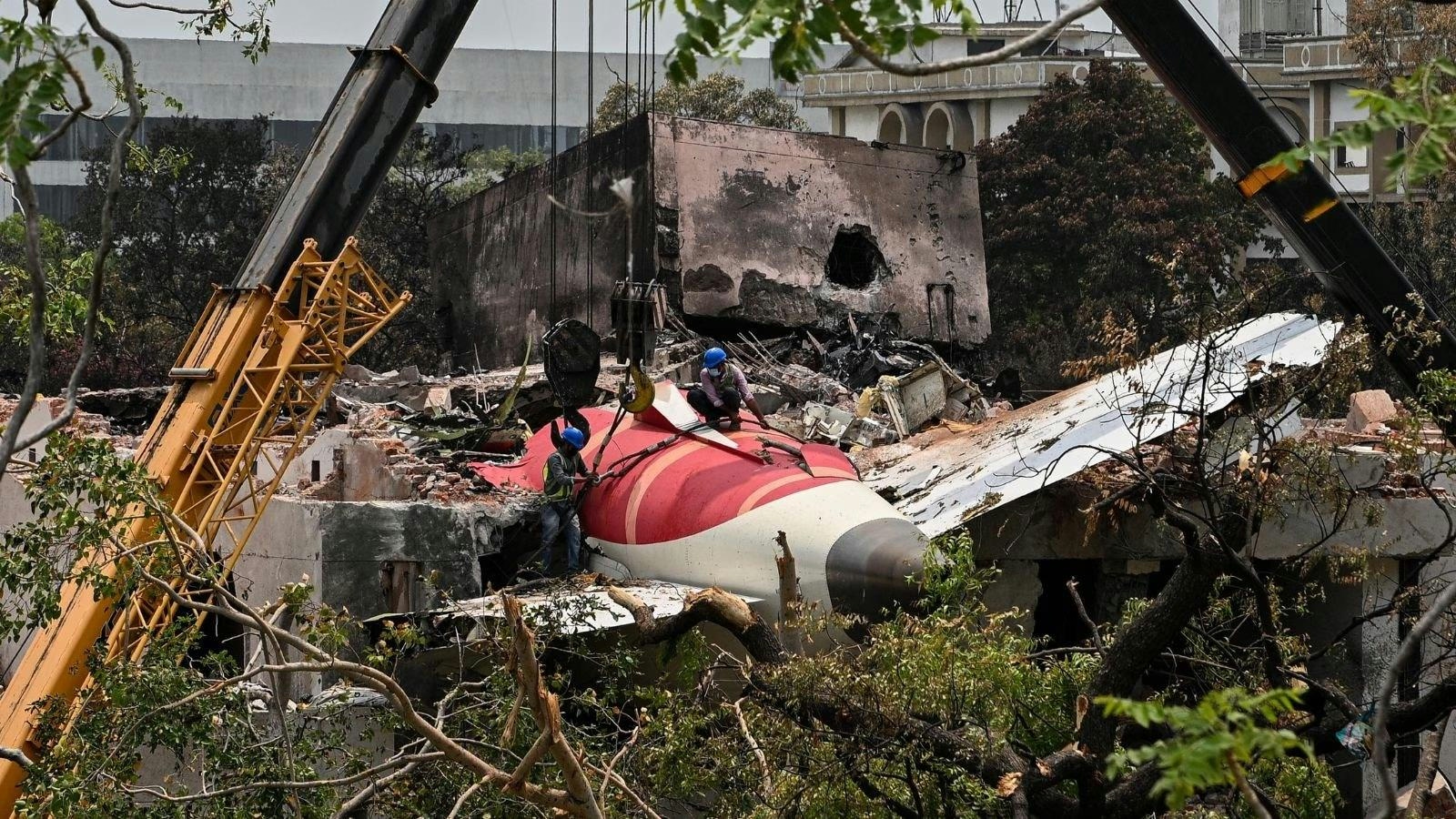
India Investigates AI-171 Crash Using Domestic Resources
India Conducts Domestic Investigation into AI-171 Crash
In a significant advancement for India’s aviation safety capabilities, the Aircraft Accident Investigation Bureau (AAIB) is conducting the black box data analysis of Air India Flight AI-171 entirely within the country for the first time. The wide-body aircraft crashed in Ahmedabad earlier this month, presenting considerable challenges for Air India amid its ongoing Vihaan.AI transformation program and raising broader concerns about aviation safety and transparency in India.
Decoding the Black Boxes: A Domestic Milestone
The investigation is being carried out at the AAIB laboratory in New Delhi, where officials successfully accessed and downloaded data from the aircraft’s Crash Protection Module (CPM) memory module on June 25, according to the Ministry of Civil Aviation. The cockpit voice recorder and flight data recorder—commonly referred to as black boxes—were recovered from the rooftop of a building and surrounding crash debris between June 13 and 16. To maintain data integrity during extraction, investigators employed an identical black box, known as the “golden chassis.”
The technical team leading the probe comprises experts from the Indian Air Force, Hindustan Aeronautics Limited (HAL), and the US-based National Transportation Safety Board (NTSB), representing the aircraft’s country of manufacture. Specialists in aviation medicine and air traffic control are also involved, with additional support from Boeing and General Electric teams stationed in Delhi. The entire investigation is overseen by the Director General of the AAIB.
This marks the first occasion on which India has fully decoded black box data domestically, a capability enabled by recent upgrades in equipment and infrastructure under the government’s Aatmanirbhar Bharat initiative. Previously, such critical analyses were outsourced to foreign countries including Russia, the United Kingdom, the United States, and Canada, often resulting in delays and concerns regarding transparency. The current investigation adheres strictly to international protocols outlined in ICAO Annex 13 and India’s Aircraft (Investigation of Accidents and Incidents) Rules, 2017.
Implications for Aviation Safety and Air India
The domestic handling of this investigation represents a watershed moment for India’s aviation sector, promising faster and more transparent accident probes. Nevertheless, the process is expected to face scrutiny concerning its effectiveness and impartiality, particularly as the crash has intensified questions about Boeing’s safety record and the robustness of India’s aviation oversight mechanisms. The investigation is also reviewing previous incidents involving the same aircraft, including a takeoff event at Gatwick Airport five years ago, to determine any potential connections.
The crash carries significant repercussions for Air India, potentially affecting its reputation and operational momentum at a critical juncture. The immediate response from Air India and its parent company, the Tata Group, has been crucial in providing support to the victims’ families. However, the incident may reshape the broader landscape of Indian aviation and tourism, influencing inbound travel and business activities.
As the investigation continues, industry observers emphasize that India’s capacity to independently and transparently investigate major air crashes will be vital in restoring public confidence and reinforcing the country’s position in global aviation safety.
Ask AeroGenie